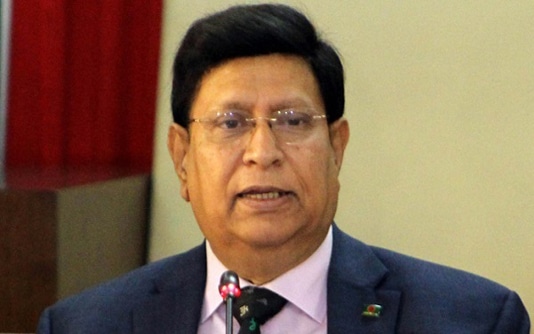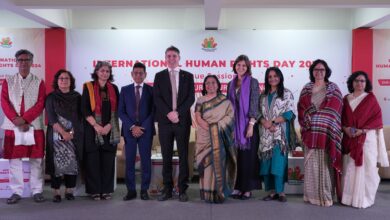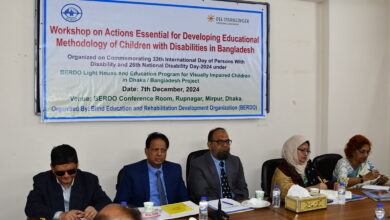Dhaka asks world leaders to boost global partnership to implement SDGs
Foreign minister AK Abdul Momen

Foreign Minister AK Abdul Momen has told world leaders that there are huge gaps in global partnerships when it comes to implementing the SDGs, calling for commitments under the Doha Programme of Action for LDCs to be kept.
Speaking at a roundtable discussion as part of a two-day SDG summit at the UN headquarters on Monday, on behalf of Prime Minister Sheikh Hasina, he also highlighted Bangladesh’s concerted efforts to implement the SDGs, claiming that the country has made famines a matter of the past.
The minister said, “We are continuing our efforts to implement the Sustainable Development Goals. Bangladesh is working to achieve the goals with the participation of all or the whole of society.”
Calling the SDGs “the Magna Carta” of the present time, he said Bangladesh has made various efforts to reduce poverty and hunger. “We have made famines a matter of the past.” As a result, he recalled that the country had reduced extreme poverty to 5.6% by 2022 — down from 25.1% in 2006.
Momen said, “But there are huge gaps in global partnerships to implement the SDGs. We want the implementation of commitments under the Doha Programme of Action for LDCs. Bangladesh wants a rules-based global trading system.”
The minister laid emphasis on imposing minimum conditions for concessional loans and life-saving technology, and said, “We believe that there need to be sufficient incentives for the private sector so that it comes forward alongside the public sector to implement the SDGs.”
Meanwhile, the world leaders at the summit deplored that progress on most SDG targets is moving too slowly and warned of perils the world faces unless it acts with urgency to rescue a set of 2030 development goals to eliminate hunger and extreme poverty and to tackle climate change.
They also adopted a political declaration to accelerate action on implementing the 17 Sustainable Development Goals.
The adoption of a 10-page document, by the heads of state and government and top representatives gathered at the United Nations headquarters in New York, came at a critical juncture as global crises — including armed conflict, adverse climate impacts and the lingering effects of the Covid-19 pandemic — threaten the achievement of the SDGs by 2030.
The high-level 78th session of the United Nations General Assembly began on Monday along with the 2023 SDG Summit. It reviewed the implementation of the 2030 Agenda and provided high-level political guidance on transformative and accelerated actions for achieving the goals.
UN Secretary-General António Guterres in his opening remarks at the SDG Summit, known formally as the high-level political forum on sustainable development said, “Now is the time for a global plan to rescue the Sustainable Development Goals, which are woefully off-track halfway towards their 2030 deadline.” He added that only 15% of the targets are on track and many are going in reverse. “Instead of leaving no one behind, we risk leaving the SDGs behind.”
UNGA President Dennis Francis noted that despite commitments, 1.2 billion people were still living in poverty as of 2022, and roughly 8% of the global population, or 680 million people, will still face hunger by the end of the decade. The international community cannot accept these numbers.
Dennis said, “With concerted, ambitious action, it is still possible that, by 2030, we could lift 124 million additional people out of poverty and ensure that some 113 million fewer people are malnourished. The political declaration “can be a game-changer in accelerating SDG progress.”
It includes a commitment to financing for developing countries and clear support for his proposal for an SDG Stimulus of at least $500 billion annually, as well as an effective debt-relief mechanism.
It further calls for changing the business model of multilateral development banks to offer private finance at more affordable rates for developing countries and endorses reform of the international finance architecture, that he labelled “outdated, dysfunctional and unfair.”





